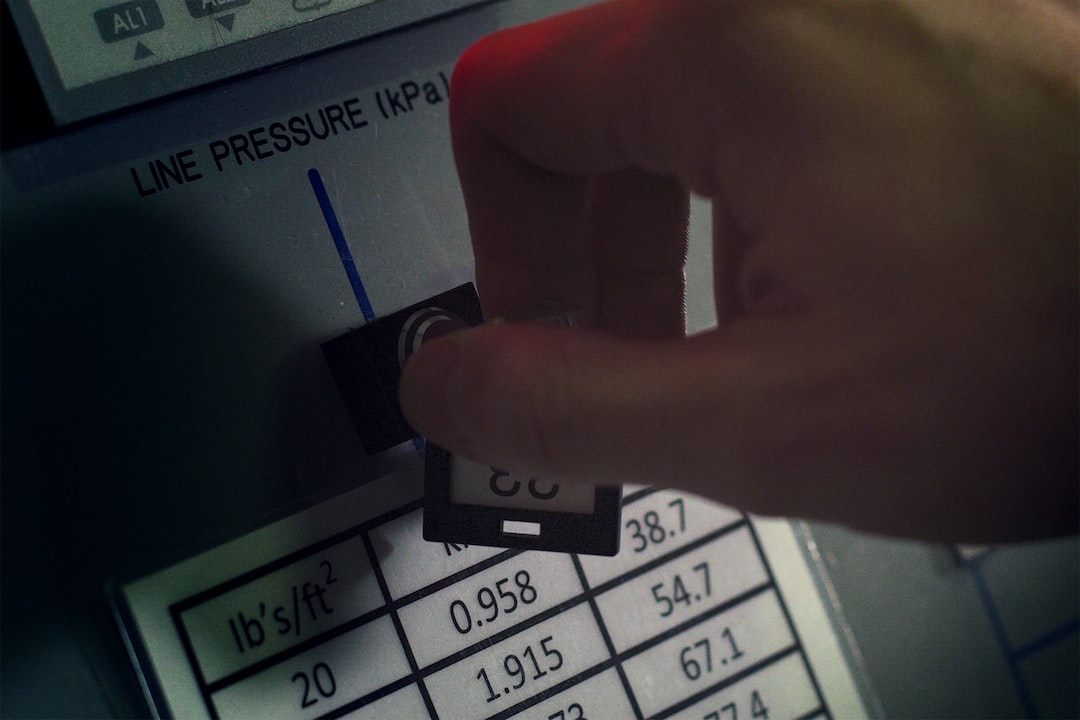
Tales of an Operator
est 1982 | SEO | Digital Marketing | Project Management | Collaboration | Positioning | Context

SEO, AI
How Website Speed Impacts Your SEO
31 May 2023
In today's digital era, website speed plays a significant role in improving the user experience and ultimately the ranking of a website in search engine results pages (SERPs). The loading speed of a website is a crucial factor that affects its SEO. In this article, we will discuss in detail how website speed impacts your SEO and provide some tips on how to improve it.
Introduction
In this section, we will discuss what website speed is and why it is essential for SEO.
What is website speed?
Website speed refers to how quickly a website loads and displays its content on the user's device. It is measured in seconds and is a crucial factor that impacts the user experience.
Why is website speed essential for SEO?
Website speed is an essential factor for SEO because search engines like Google consider it when ranking websites. Google's algorithm considers page speed as one of the ranking factors for a website. The faster a website loads, the higher it ranks in SERPs.
How Website Speed Affects SEO
In this section, we will discuss how website speed impacts your SEO.
1. Improved User Experience
Website speed plays a vital role in improving the user experience. A faster website loads quickly, which reduces the bounce rate and increases the time spent by visitors on your site. This positive user experience signals to search engines that your website is providing value to users, which can lead to improved SEO rankings.
2. Lower Bounce Rate
Bounce rate refers to the percentage of visitors who leave a website without clicking on any internal links. A slow website can lead to a high bounce rate, which is not good for SEO. When a website takes too long to load, visitors are likely to leave and visit a competitor's site instead. A faster website reduces the bounce rate, which is an important ranking factor for SEO.
3. Improved Crawlability
Search engine bots crawl and index a website to determine its relevance and ranking. A faster website improves crawlability, making it easier for search engine bots to crawl and index your website's content. This can lead to improved SEO rankings.
4. Mobile Optimization
With the increasing number of mobile users, website speed has become even more critical for SEO. A slow website on mobile devices can lead to a negative user experience, which can impact SEO rankings negatively.
5. Increased Pageviews
A faster website increases the number of page views per session, which is good for SEO. It means visitors are engaging with your website, which can lead to a higher conversion rate.
How to Improve Website Speed
In this section, we will discuss some tips on how to improve website speed.
1. Optimize Images
Large images can slow down a website's loading speed. Compress and optimize images before uploading them to your website to improve website speed.
2. Minimize HTTP Requests
Reduce the number of HTTP requests by minimizing the number of scripts, stylesheets, and images on your website. This can significantly improve website speed.
3. Use a Content Delivery Network (CDN)
A content delivery network (CDN) can improve website speed by caching content and delivering it from the server closest to the user. This reduces the time it takes for content to load, leading to a faster website.
4. Use Browser Caching
Browser caching saves some of the website's data on the user's device, making it faster to load the next time the user visits the site. This can significantly improve website speed.
5. Use a Faster Hosting Service
The hosting service you use for your website can significantly impact its loading speed. Use a faster hosting service to improve website speed.
Conclusion
In conclusion, website speed is a crucial factor that affects SEO. A faster website can improve user experience, lower bounce rate, improve crawlability, better mobile optimization, and increase pageviews. To improve website speed, website owners should optimize images, minimize HTTP requests, use a content delivery network, use browser caching, and use a faster hosting service. By implementing these tips, website owners can improve website speed and ultimately improve their website's SEO rankings.
FAQs
How does website speed impact SEO rankings?
Website speed is one of the factors that search engines consider when ranking websites. A faster website can improve user experience, lower bounce rate, improve crawlability, better mobile optimization, and increase pageviews, all of which can positively impact SEO rankings.
Can a slow website negatively impact SEO rankings?
Yes, a slow website can negatively impact SEO rankings by leading to a high bounce rate, poor user experience, and reduced crawlability.
What is the ideal website loading speed?
The ideal website loading speed is under three seconds.
How can I check my website's loading speed?
You can check your website's loading speed using various online tools such as Google PageSpeed Insights, GTmetrix, Pingdom, and WebPageTest.
Can optimizing website speed improve conversion rates?
Yes, optimizing website speed can lead to a better user experience, which can ultimately lead to increased conversion rates.
Access All of My Amazing Prompts:
Share this post on:
RECENT POST
-
30 May 2023
CATEGORY
-
SEO
-
ONLINE ADS
-
MARKETPLACE POSITIONING
-
PROJECT MANAGEMENT
-
FRAMEWORKS
-
TEAM COLLABORATION
-
KANBAN
-
IMPLEMENTING AGILE IN TEAMS
-
MARKETING STRATEGIES
-
CASE STUDIES: EMAIL
-
CASE STUDIES: SEO
-
CASE STUDIES: SOCIAL MEDIA
-
CASE STUDIES: ONLINE ADS
-
CASE STUDIES: ONLINE SCHEDULING
-
-

Garrett Vatcher
Principal Consultant | Founder
Experience matters when it comes to SEO success. With over $1B in attributed revenue and 10,000+ online scheduled appointments, Garrett Vatcher, Principal Consultant at SEO Marketing Consultant, has the expertise to help your business thrive."
FEATURED ARTICLE
18 May 2023
17 May 2023
Writing Killer Seo Content With Chatgpt
Chatgpt And How It Can Help With Seo
Boost Seo With Chatgpt Chatbot
Game With Semantic Seo And Chatgpt
Writing Killer Seo Content With Chatgpt
Chatgpt Local Seo Tools
Seo With Chatgpt Poweful Tools
Using Automated Seo For Your Website
Why Mobile Optimization Is Essential Seo
How Content Marketing And Seo Works
Chatgpt The Next Generation Language
The Future Of Ai Technology Basics
How Ai Changes The Way We Learn
The Lates Ai Research And Breakthroughs
The Ultimate Seo Checklist For 2023
The Importance Of Title Tags For Seo
Complete Guide To Link Building For Seo
Optimize Your Product For Ecommerce Seo
Machine Learning A Beginners Guide
Chatgpt Competitor Analysis Tools
Website For Voice Search With Chatgpt
Revolutionizing Seo Boosting Rangkings
How Machine Learning And Ai Algorithms
How Website Speed Impacts Your Seo
Tips On Boosting Organic Search Traffic
What Makes Chatgpt Different From Gpt3
How To Built Chatbot With Chatgpt
The Evolution Of Ai Technology
What Is Seo And How Does It Works
Beginners Guide To Google Analytics Seo
How To Write Meta Descriptions For Seo
How To Boost Seo With Guest Blogging
Power Of User Generated Ecommerce Seo
The Ai Technology Behind Voice Assistant
Seo Potential Chatgpt Content
Seo Chatgpt Backlink Analysis Tools
Ai Tools To Help You Rank Higher
Role Of Nlp In Optimizing Seo Content
Top Seo Metrics To Track Performance
Importance Of Backlink Analysis For Seo
What Is A Language Model
Top 10 Ai Applications For Your Business
Ai Finance Improving Accuracy Efficiency
Seo For Beginners A Comprehensive Guide
The Top Keyword Research Tools For Seo
Ultimate Guide To Header Tags For Seo
Ultimate Guide To Local Keyword Seo
Mobile Friendly Websites For Seo
Chatgpt And How It Can Help With Seo
Writing Killer Seo Content With Chatgpt
Chatgpt And How It Can Help With Seo
Boost Seo With Chatgpt Chatbot
Game With Semantic Seo And Chatgpt
Writing Killer Seo Content With Chatgpt
Chatgpt Local Seo Tools
Seo With Chatgpt Poweful Tools
Using Automated Seo For Your Website
Why Mobile Optimization Is Essential Seo
How Content Marketing And Seo Works
Chatgpt The Next Generation Language
The Future Of Ai Technology Basics
How Ai Changes The Way We Learn
The Lates Ai Research And Breakthroughs
The Ultimate Seo Checklist For 2023
The Importance Of Title Tags For Seo
Complete Guide To Link Building For Seo
Optimize Your Product For Ecommerce Seo
Machine Learning A Beginners Guide
Chatgpt Competitor Analysis Tools
Website For Voice Search With Chatgpt
Revolutionizing Seo Boosting Rangkings
How Machine Learning And Ai Algorithms
How Website Speed Impacts Your Seo
Tips On Boosting Organic Search Traffic
What Makes Chatgpt Different From Gpt3
How To Built Chatbot With Chatgpt
The Evolution Of Ai Technology
What Is Seo And How Does It Works
Beginners Guide To Google Analytics Seo
How To Write Meta Descriptions For Seo
How To Boost Seo With Guest Blogging
Power Of User Generated Ecommerce Seo
The Ai Technology Behind Voice Assistant
Seo Potential Chatgpt Content
Seo Chatgpt Backlink Analysis Tools
Ai Tools To Help You Rank Higher
Role Of Nlp In Optimizing Seo Content
Top Seo Metrics To Track Performance
Importance Of Backlink Analysis For Seo
What Is A Language Model
Top 10 Ai Applications For Your Business
Ai Finance Improving Accuracy Efficiency
Seo For Beginners A Comprehensive Guide
The Top Keyword Research Tools For Seo
Ultimate Guide To Header Tags For Seo
Ultimate Guide To Local Keyword Seo
Mobile Friendly Websites For Seo



